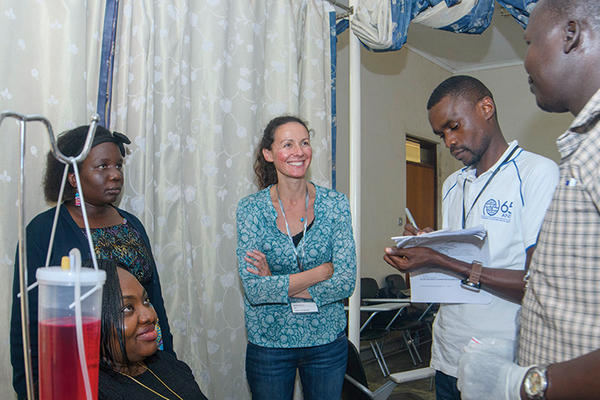Leveraging big data science to design personalized statin treatment plans
Research utilizes data from OptumLabs Data Warehouse
October 17, 2019
Brett Stursa

Associate Professor Chih-Lin Chi, PhD, MBA, was awarded a multi-year RO1 grant from the National Institutes of Health/National Heart, Lung and Blood Institute to use big data science and artificial intelligence (AI) to determine an individualized statin treatment plan for people seeking to lower their cholesterol.
The research utilizes data from the OptumLabs Data Warehouse, which includes de-identified insurance claims and electronic health records data from more than 200 million patients across the United States. The School of Nursing was one of the first members of the OptumLabs research collaborative, an academic/corporate partnership.
Chi’s study will produce a precision-medicine tool to give health professionals the ability to make proactive clinical decisions regarding statin treatment planning, like selecting the specific statin drug and dosage optimized for a particular patient to maximize low-density lipoprotein (LDL) cholesterol reduction and minimize statin discontinuation. While an estimated 47% of Americans 65 years old and older take statins to reduce their LDL cholesterol, more than half of patients prescribed statins do not obtain these critical benefits because they discontinue use within one year of treatment initiation.
“Precision medicine, which takes into account an individual’s unique characteristics, such as genes, environment, social-economic factors and lifestyle, has the potential to dramatically alter the way we treat chronic conditions, like high cholesterol,” said Chi. “This research uses big data science to empower health professionals to better align statin treatment plans to a specific patient, which in turn will result in better health for that patient.”
Chi worked with the University of Minnesota Office of Technology Commercialization to file a provisional patent on the intellectual property created in his preliminary study, which is the first patent application filed by an OptumLabs research partner.
This interprofessional health informatics project involves nine key areas, including nursing, machine learning and artificial intelligence, preventive clinic, pharmacy, cloud and high-performance computing, biostatistics, operations research, clinical studies and clinical trial simulations.


